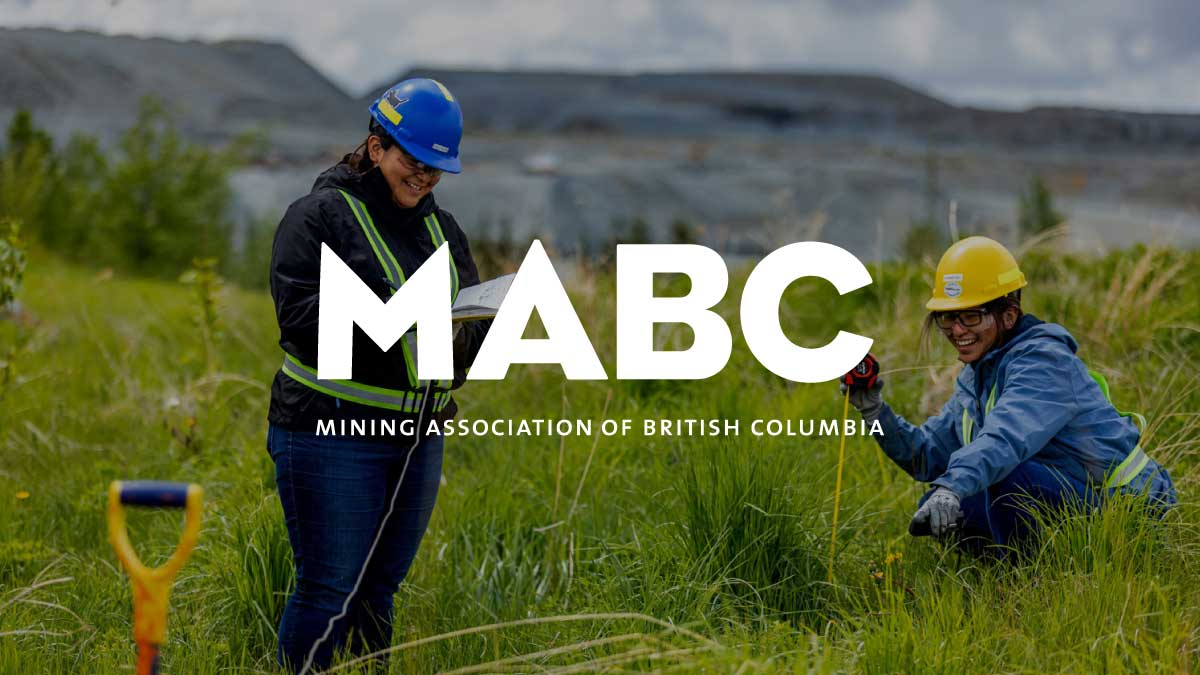VICTORIA, BC – Changes to the design of the new made-in-BC Output-based Carbon Pricing System (OBPS) in Budget 2024 will help attract and retain investment in BC’s mining and critical mineral sector, says the Mining Association of BC (MABC).
“BC’s mining and smelting industry has long supported a price signal to reduce GHG emissions. The new OBPS provides better carbon pricing policy for mining and smelting operations in BC that will continue to incentivize GHG emission reductions, while improving the competitive position of BC’s critical mineral sector,” said Michael Goehring, President and CEO of MABC.
As part of last year’s provincial budget, the Province announced the transition from the existing CleanBC carbon tax towards a new carbon pricing system for large industrial emitters, the BC OBPS, effective April 1, 2024. The new BC OBPS is similar to the federal carbon pricing system. It incents GHG emissions reductions through a performance-based system that includes offsets and credits to meet a product-specific emissions limit and seeks to limit tax competitiveness risks.
“MABC has actively engaged government and advocated for changes to the carbon tax since 2021 to improve the competitive position of BC’s mines and smelters,” said Goehring. “We are pleased government considered our input and recalibrated the technical details of the BC OBPS to provide a more competitive fiscal foundation for critical minerals development in BC.”
BC’s mines and smelters have among the lowest GHG emissions in the world, due to their use of clean electricity. The new BC OBPS will help support innovation and new technologies to further decarbonize our critical mineral mines and smelters, like zero emission haul trucks at mine sites.
“The BC OBPS marks a step forward in narrowing the competitiveness gap between BC, Ontario and Quebec, while maintaining BC’s position as a climate leader. A more competitive mining sector is good news for the tens of thousands of workers in urban and regional centres, small towns and First Nations communities who stand to benefit from high-paying, family-supporting jobs that have sustained British Columbians for generations,” said Goehring.
With the right policies in place, BC can be a world leader in supplying critical minerals vital to clean technologies and fighting climate change. Budget 2024 includes $24 million in new funding over three years to support the Province’s Critical Minerals Strategy including new dollars for regional and major mines permitting; the new critical minerals advancement office; the modernization of the Mineral Tenure Act; and work to support further fiscal policy improvements for the critical mineral sector.
Other important initiatives in Budget 2024 include the First Nations Equity Financing Framework, which establishes enabling tools to help support equity financing opportunities in natural resource projects for First Nations. The budget also earmarks $250 million for 21 rural and remote governments in Northwest BC to support the planning and construction of infrastructure such as roads, water, sewer, and other community facilities. Both of these budget items support BC’s critical minerals future.
“Developing BC’s critical mineral resources means billions in economic development and thousands of high-paying jobs, in addition to the opportunity to accelerate economic reconciliation with First Nations,” said Goehring. “Critical minerals offer a generational opportunity to build prosperity for British Columbians.”
About the Mining Association of British Columbia
MABC is the voice of British Columbia’s steelmaking coal, metal and mineral producers, smelters and advanced development companies. Our industry benefits all British Columbians and supports more than 35,000 jobs and over 3,900 small, medium and indigenous affiliated businesses in every corner of the province through an annual spend of $3.7 billion on goods and services. Our members’ products have among the lowest carbon footprints globally and are helping the world transition to a cleaner, low-carbon future; safely and responsibly.
For more information
Jayne CzarnockiDirector, CommunicationsMining Association of British ColumbiaCell: 778-957-2597Email: jczarnocki@mining.bc.ca
This article was published by: MABC
Visit the original article here


